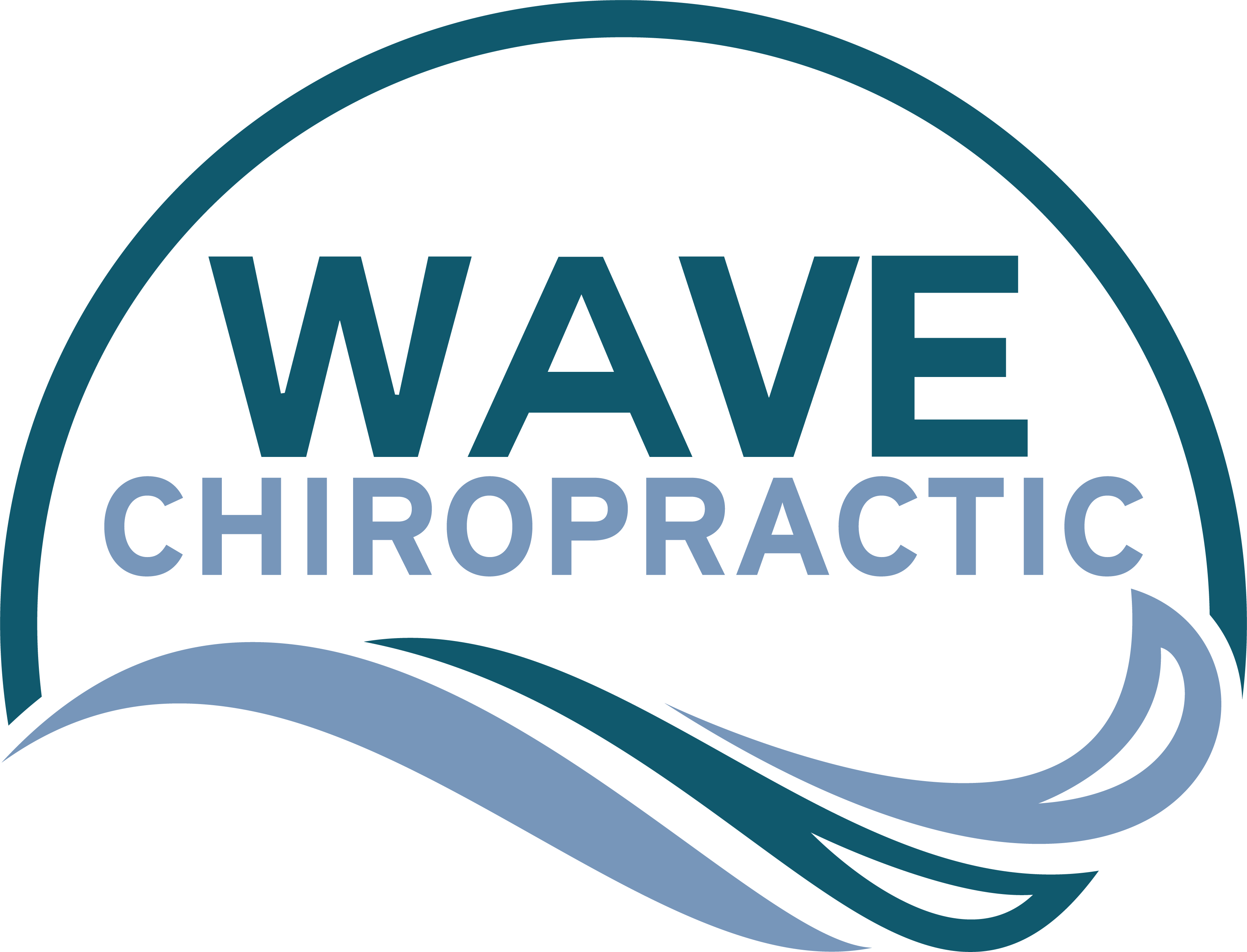When you think about athletic performance, recovery is often overlooked, yet it's essential for your success. You might not realize that expert care can greatly enhance your recovery process. By integrating personalized treatment plans and advanced techniques, you can not only reduce injury risk but also improve your overall performance. From nutrition strategies to mental recovery methods, there's much to explore. What if you could tailor your recovery approach to suit your specific needs and goals? Understanding these elements could be the key to releasing your full potential.
Importance of Recovery
Recovery is the unsung hero of athletic performance. You might focus heavily on training and pushing your limits, but without proper recovery, you're setting yourself up for failure. Recovery allows your body to repair and adapt, ensuring you come back stronger and more resilient. It's the time when your muscles rebuild, your energy stores replenish, and your mind resets.
Neglecting recovery can lead to fatigue, decreased performance, and even injury. When you train hard, microscopic tears occur in your muscle fibers. If you don't give your body the chance to heal, you risk overtraining, which can derail your progress and sideline you for weeks or even months. You need to listen to your body's signals and prioritize recovery just as much as your workouts.
Moreover, recovery isn't just about physical rest; it's also about mental rejuvenation. Athletes often push themselves to the brink mentally, and taking time to rest can enhance focus and motivation. Your performance relies on a well-rounded approach that includes both training and recovery.
Incorporating rest days, proper nutrition, and hydration into your routine is essential. It's not just a luxury; it's a necessity.
Understanding the importance of recovery can transform your training regimen and lead to improved performance. So, make recovery a priority in your athletic journey. You'll be surprised at how much it can elevate your game.
Expert Recovery Techniques
When it comes to optimizing your recovery, expert techniques like Active Release Techniques and cryotherapy can make a significant difference.
These methods help relieve muscle tension and reduce inflammation, allowing you to bounce back faster.
Let's explore how incorporating these strategies can enhance your athletic performance.
Active Release Techniques
Active Release Techniques (ART) offer a targeted approach to alleviating muscle tension and enhancing athletic recovery. By focusing on specific areas of tightness and dysfunction, ART helps you regain your ideal performance levels. This hands-on technique integrates soft tissue manipulation with movement, allowing you to address the underlying issues that may be hindering your recovery.
Here are some benefits of incorporating ART into your recovery routine:
- Improved flexibility: Release tight muscles and fascia to enhance your range of motion.
- Pain reduction: Address chronic pain and discomfort that can arise from repetitive movements.
- Increased blood flow: Promote circulation to speed up healing and recovery processes.
- Enhanced performance: Maximize muscle function and reduce the risk of injury during training or competition.
- Personalized care: Receive tailored treatment based on your specific needs and athletic goals.
Integrating ART into your recovery plan can greatly boost your ability to bounce back after intense workouts or competitions.
Cryotherapy Benefits
Cryotherapy, a cutting-edge recovery technique, involves exposing your body to extremely cold temperatures for a short period. This method offers several benefits that can considerably enhance your athletic performance and recovery process.
First, it helps reduce inflammation and muscle soreness, allowing you to bounce back faster after intense workouts. By constricting blood vessels during treatment and promoting circulation when you warm up, cryotherapy aids in flushing out metabolic waste.
Additionally, you'll find that cryotherapy boosts your energy levels and mood. The cold exposure triggers the release of endorphins, which can elevate your overall sense of well-being. You might also notice improved sleep quality, as the calming effects of cryotherapy can help regulate your sleep patterns.
Another advantage is its ability to speed up recovery from injuries. The cold helps numb pain and can facilitate quicker healing by stimulating cellular repair processes.
Ultimately, incorporating cryotherapy into your routine can be a game-changer, providing you with the recovery edge needed to excel in your athletic endeavors. So, if you're looking to optimize your performance, consider making cryotherapy a regular part of your recovery strategy.
Nutrition for Optimal Recovery
Athletes' recovery isn't just about rest; nutrition plays an essential role in speeding up the healing process. What you eat can noticeably impact how quickly you bounce back after intense training or competition. Proper nutrition provides the necessary building blocks for muscle repair and replenishes energy stores, helping you get back to peak performance sooner.
Here are five key nutritional components to focus on for ideal recovery:
- Protein: Essential for muscle repair, aim for lean sources like chicken, fish, or plant-based options such as lentils and beans.
- Carbohydrates: Important for replenishing glycogen stores, include whole grains, fruits, and vegetables to fuel your recovery.
- Healthy Fats: Omega-3 fatty acids found in fish, walnuts, and flaxseeds can help reduce inflammation and promote healing.
- Hydration: Staying hydrated is essential. Water, electrolyte drinks, and herbal teas can all help maintain fluid balance.
- Antioxidants: Foods rich in antioxidants, like berries, spinach, and nuts, can combat oxidative stress and support your immune system.
Role of Physical Therapy
When it comes to recovery, physical therapy can be a game changer. It's not just about healing injuries; it's about optimizing your performance and preventing future setbacks. A skilled physical therapist evaluates your unique situation, understanding your specific needs and goals. They'll create a personalized plan that focuses on rehabilitation, flexibility, strength, and endurance, ensuring you bounce back stronger than before.
During your sessions, you'll engage in targeted exercises that help restore mobility and function. This hands-on approach allows you to address muscle imbalances and joint restrictions that may have developed over time. You'll learn techniques to improve your body mechanics, which can enhance your overall athletic performance.
In addition, physical therapy provides education on proper warm-up routines, cool-down practices, and injury prevention strategies tailored to your sport. By understanding how to move correctly and efficiently, you'll reduce the risk of future injuries.
Moreover, physical therapists often incorporate modalities like ultrasound, electrical stimulation, or manual therapy, which can accelerate the healing process. These techniques help decrease pain and inflammation, allowing you to recover faster.
Ultimately, committing to physical therapy means investing in your long-term health and performance. It empowers you to take control of your recovery journey and equips you with the tools you need to succeed.
Mental Recovery Strategies
Mental recovery strategies play an essential role in your overall athletic performance and well-being. Just as your body needs rest after intense training, your mind requires recovery to maintain focus, resilience, and motivation. By incorporating effective mental strategies, you can enhance your performance and ward off burnout.
Here are some key approaches to evaluate:
- Mindfulness meditation: Practice being present to reduce anxiety and improve concentration.
- Visualization: Imagine yourself succeeding in your sport, boosting confidence and mental readiness.
- Positive self-talk: Replace negative thoughts with affirmations to foster a winning mindset.
- Goal setting: Create realistic, achievable goals to maintain motivation and track progress.
- Journaling: Reflect on your experiences and emotions to gain insights and clarity.
These strategies not only help you recover from the mental fatigue of competition and training but also build mental resilience. Engaging in mindfulness practices can help clear your mind, while visualization techniques prepare you for upcoming challenges.
Positive self-talk can transform your internal dialogue, leading to improved confidence and performance. Setting specific goals gives you a clear path to follow, making it easier to stay motivated.
Finally, journaling allows you to process your thoughts and emotions, helping you learn from both successes and setbacks. By prioritizing mental recovery, you'll not only enhance your athletic performance but also foster a more balanced and fulfilling life as an athlete.
Tailored Recovery Programs
Creating a tailored recovery program is essential for your athletic performance.
By evaluating your unique needs and recovery timeline, you can develop personalized treatment plans that work best for you.
Incorporating effective performance enhancement techniques will help you bounce back stronger and faster.
Personalized Treatment Plans
In today's fast-paced sports environment, personalized treatment plans have become essential for optimizing athletic recovery. Each athlete's body responds differently to training and injury, so a one-size-fits-all approach simply doesn't cut it.
When you embrace personalized care, you're setting the stage for a more effective recovery journey.
Consider the benefits of a tailored treatment plan:
- Individual Assessment: You'll receive a thorough evaluation of your unique physical condition.
- Customized Protocols: Treatment strategies will align with your specific needs and goals.
- Targeted Therapies: You'll benefit from therapies that address your particular injuries or recovery challenges.
- Ongoing Adjustments: Your plan can evolve based on progress and feedback, ensuring you're always on the right track.
- Holistic Approach: You'll integrate nutrition, rest, and mental health into your recovery strategy.
Recovery Timeline Assessment
Tailored recovery programs hinge on understanding the timeline for each athlete's recovery journey. You need to assess your unique circumstances, including injury type, severity, and personal health history. This information helps you and your recovery team create a roadmap that outlines when you can safely return to your sport.
Start by tracking your progress regularly. Daily or weekly check-ins can reveal how your body responds to treatment and rehabilitation exercises. This ongoing assessment allows adjustments to your recovery plan, ensuring it aligns with your evolving needs. You might find that some activities can be reintroduced sooner than expected, while others may require additional time.
It's also essential to communicate openly with your healthcare providers. Share any changes in your symptoms or concerns, as this feedback can greatly influence your recovery timeline.
Remember, each athlete's timeline is different; what works for someone else mightn't work for you.
Ultimately, a well-structured recovery timeline not only helps speed up your healing but also prepares you mentally for a successful return to peak performance. By staying committed and informed, you can make the most of your recovery journey.
Performance Enhancement Techniques
To enhance your performance during recovery, integrating specific techniques into your program can make a significant difference.
Tailored recovery programs focus on your unique needs, ensuring you bounce back stronger and faster. Here are some effective performance enhancement techniques you should consider:
- Active Recovery: Incorporate low-intensity exercises to maintain blood flow and reduce soreness.
- Nutrition Optimization: Fuel your body with the right nutrients to support muscle repair and recovery.
- Hydration Management: Keep hydrated to facilitate metabolic processes and prevent fatigue.
- Sleep Hygiene: Prioritize quality sleep to enhance your body's natural recovery processes.
- Mindfulness Practices: Engage in meditation or breathing exercises to reduce stress and promote mental clarity.
Conclusion
By prioritizing recovery with expert care, you're setting yourself up for success. Embrace advanced techniques, proper nutrition, and tailored programs to enhance your performance and resilience. Don't forget the importance of mental recovery strategies—mindfulness and positive self-talk can make a significant difference. Remember, investing in your recovery isn't just about bouncing back; it's about elevating your game and staying at the top of your athletic performance. Take charge of your recovery journey today!

